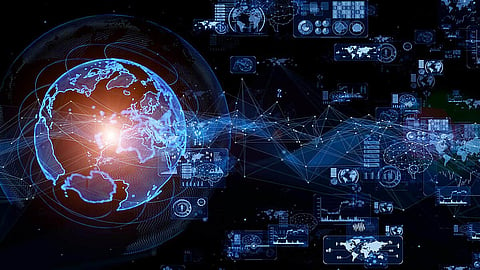

Massive data is generated by sensors placed by billions of connected devices around the world. IoT is everywhere, consider the rise of smart watches that allow people to track their fitness, monitor their sleeping patterns, measure their heart rate, to smart sensors that go beyond the human reach in industrial maintenance activities, IoT is everywhere. Think of a future where self-driving cars will collect, process, and store driving data at the edge to make road travel safer and more enjoyable. Here are the most innovative applications of IoT that will redefine the world post COVID-19
IoT Techology is deployed by a handful of companies to keep track of their pest populations. For instance, Semios, uses sensors and machine vision technology to check the pest populations in vineyards, orchards and other agricultural settings. Another example in this field is IoT Box Systems, a company that makes connected cages, bait stations and traps that inform the user when they catch an animal.
Winemakers in the Mosel Valley in southwest Germany have deployed Internet of Things system called TracoVino, developed by MyOmega, according to Ericsson, which supplied the device connection platform used in the Telenor Connexion infrastructure supporting TracoVino. IoT powered sensors in the vineyard upload data on multiple parameters like soil humidity, air humidity, sunshine, and intensity of sunshine, temperature and rainfall to the cloud. TracoVino enables the vineyard workers to help do the right work at the right time, and mitigate bad decisions during harvest that could affect the quality of the produce, besides improving the sustainability by better limiting the use of pesticides.
IoT finds its application to monitor fishing practices and to better understand the health of the underwater environment. The Port of New Bedford, when faced with the challenge to limit illegal fishing practices, installed Dell Edge Gateways, that is equipped with V5 Systems solar video surveillance technologies that helps to track the happenings in and out of the port.
Predictive maintenance is hugely applied into building management, oil and gas and so on where IoT finds its application into a number of consumers and industries. For instance, many manufacturing industries use IoT powered sensors for their predictive maintenance activities, where the sensors predict the tentative breakdown before they even occur.
IoT is building new dimensions when it comes to smart cities. IoT is seeping into urban life, from smart street lighting to better parking, IoT technologies have redefined our immediate surroundings. Smart sensors into devices can help into better waste management by picking trash where human hands cannot reach.
According to leading market estimates, the IoT market is achieving new heights and will skyrocket to reach US$ 1256.1 billion by 2025 from US$ 690 billion in 2019 growing at a CAGR of 10.53%, during the forecasted period 2020-2025. With the development of wireless networking technologies, the emergence of advanced data analytics, a reduction in the cost of connected devices, the IoT market is expected to grow at a positive rate, even after the Covid-19 pandemic.
It is safe to say that Industry 4.0 and IoT are at the centre of new technological approaches for development, production, and management of industries across domains. Massive shifts in industries after the Covid-19 scare is contained and the acceptance of IoT requires enterprises to adopt agile, smarter, and innovative ways to advance production with technologies that complement and augment human labour with robotics that reduces any instances of industrial accidents of the future.
Join our WhatsApp Channel to get the latest news, exclusives and videos on WhatsApp
_____________
Disclaimer: Analytics Insight does not provide financial advice or guidance. Also note that the cryptocurrencies mentioned/listed on the website could potentially be scams, i.e. designed to induce you to invest financial resources that may be lost forever and not be recoverable once investments are made. You are responsible for conducting your own research (DYOR) before making any investments. Read more here.
